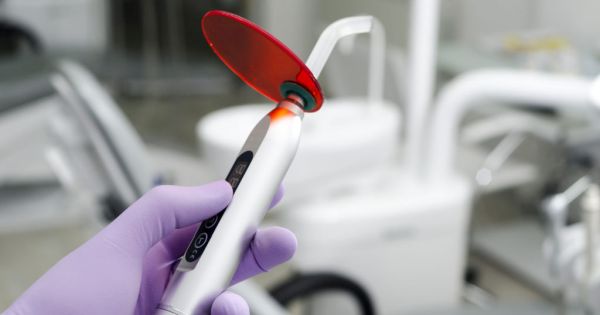How Laser Dentistry is Used by Dentists

If you have noticed that your dentist has not reached for the drill as often, it is because of laser dentistry. Lasers pinpoint problem areas and are accurate, improving the outcomes of procedures. The technology can even reduce side effects and discomfort. It is no wonder that lasers are becoming the go-to choice for many dentists.
How the process works
Those who are new to laser dentistry are likely confused about how a dental laser works. A dental laser is a small instrument that emits a narrow beam of light energy. The laser can vaporize or cut tissue immediately on contact.
The laser beam cauterizes soft tissue while working, keeping blood loss to a minimum. This also reduces the need for pain medication after a procedure and speeds up recovery time.
Types of lasers
Dentists choose from hard-tissue and soft-tissue lasers. While most procedures require one or the other, dentists combine laser treatments in some cases. Dentists evaluate the patient’s needs to determine if the person would benefit from a single type of laser or a combination.
Hard-tissue lasers
Hard-tissue lasers are built to cut into hard tissue, and so easily cut into the teeth, removing the need for drills and other equipment.
Hard-tissue lasers are commonly used to remove tooth decay. Dentists also use them to prepare for fillings, root canals and bonding. The lasers make placement much easier for dentists.
In addition, these lasers are used as a treatment for sensitive teeth. Those who have sensitive teeth can undergo a laser treatment to seal the tubules that cause the sensitive reaction. They should notice an immediate reduction in symptoms.
Hard-tissue lasers make many procedures virtually pain-free and thus reduce the need for anesthesia. Nerve tissues are also less likely to overheat when using this technology.
Soft-tissue lasers
Soft-tissue lasers are the other option. These lasers are made to work on soft tissue, such as gums.
Dentists use soft-tissue lasers to reshape gums and remove excess tissue. They are also effective in removing damaged gum tissue, so healthy tissue can grow in its place.
Crown lengthening is another popular procedure. Dentists use soft-tissue lasers to reshape the tissue and bone in order to expose a healthier tooth structure. This creates an ideal foundation for placing restorations.
Like hard-tissue lasers, the use of soft-tissue lasers reduces the need for anesthesia. It also reduces the amount of bleeding that occurs during the procedure. This limits any side effects patients experience.
Are you ready for an appointment?
There are many reasons to choose laser dentistry. People are encouraged to talk to their dentists to find out if this is a good option for them. If it is, the dentist will walk them through the process, telling them what to expect before, during and after the procedure.
Are you considering laser dentistry in the Albuquerque area? Get more information at https://familychoicedentistry.com.
Check out what others are saying about our dental services on Yelp: Laser Dentistry.
Related Posts
Wisdom teeth extraction is common among teens and people in their early 20s. If you are around this age or have a child in this period of life, it is time to consider this procedure. Your dentist can evaluate you or your son or daughter to determine the appropriate next steps. These third molars often…
A TMJ dentist can help patients address pain, stiffness, and other complications linked to the temporomandibular joints. These joints near the ears are responsible for jaw movement, including speaking, chewing, and yawning. When dysfunction arises, it can significantly impact daily life. Recognizing the signs early and consulting the right dental professional is essential for effective…
It may be time to remove your wisdom teeth, but your dentist can confirm. If the dental professional believes this is the right decision, you want to go into the procedure feeling comfortable. Removing these third molars can be an invasive process that requires several days’ recovery. Make sure you learn everything you can about…
If your wisdom teeth have begun to emerge, it is time to speak to your dentist. When these teeth are impacted, they can have some serious effects on your oral health. It is important for you to understand the risks these teeth pose and the steps you should take. Your dentist can walk you through…
